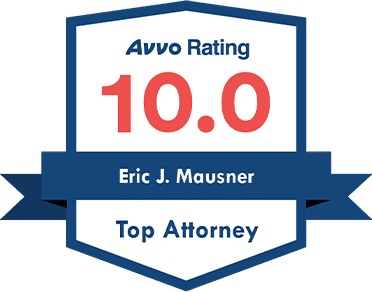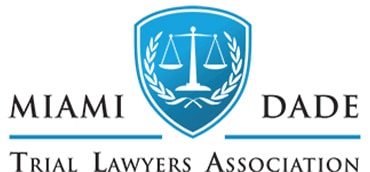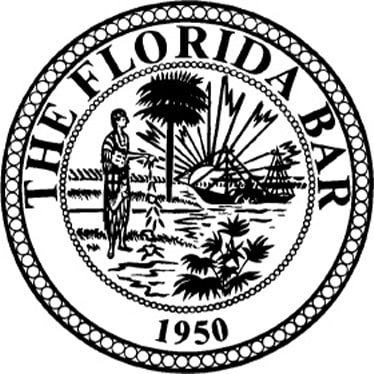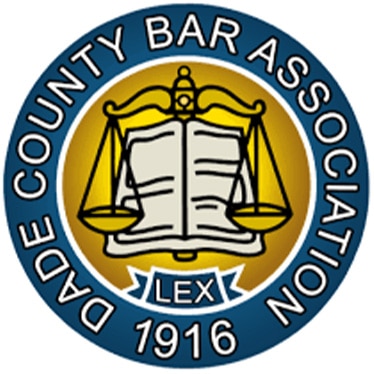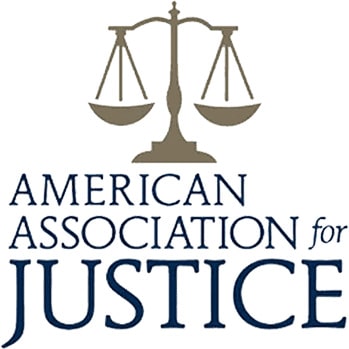What happens if someone else is driving my car and gets in an accident? You’ll need to know who is liable and how your insurance responds. This article breaks down the responsibilities, coverage details, and steps to take after an accident.
Key Takeaways
- Your auto insurance serves as primary coverage in accidents involving someone else driving your car, with the driver’s insurance acting as secondary coverage if damages exceed your policy limits.
- The distinction between permissive and non-permissive use of your vehicle significantly affects insurance claims, with permissive use activating coverage while non-permissive use may lead to claim denial.
- If another driver causes an accident while driving your car, the at-fault driver is legally responsible for damages, but you may experience increased insurance premiums if claims are filed.
Get Your FREE Case Review Today
Understanding Primary and Secondary Coverage
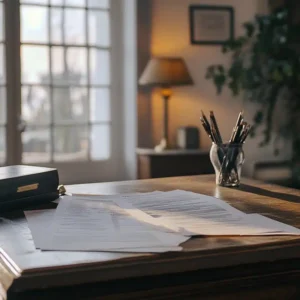
When someone else drives your car, your auto insurance policy acts as the primary coverage for any damages or injuries resulting from an accident. Essentially, your insurance will initially address any claims.
If the accident costs exceed your policy’s coverage limits, the driver’s own insurance may step in as secondary coverage to handle the additional expenses.
This layered approach ensures that there is sufficient coverage to handle substantial damages or injuries.
Grasping the relationship between primary and secondary insurance is important, particularly for collision coverage and liability car insurance coverage.
If the driver who borrowed your car is at fault, your insurance covers the damages up to your policy’s coverage limits.
Should those limits be surpassed, the next line of defense will be the driver’s own insurance.
This safety net protects all parties involved, so being aware of these provisions helps avoid unexpected financial burdens.
Permissive vs. Non-Permissive Use
Whether the use of your car was permissive or non-permissive significantly impacts your insurance claims. Permissive use occurs when you grant permission to the driver, thereby activating your insurance coverage. Conversely, non-permissive use means the driver did not have your permission, potentially leading to your insurance company refusing to cover any damages. This distinction is vital, as it dictates whether claims will be paid and under what conditions.
Most car insurance policies cover authorized drivers, but you should verify if a permissive use clause applies to your specific car insurance policy. Certain situations, such as unauthorized use, may result in the insurance company denying claims, leaving you to foot the bill.
Moreover, if your insurance company does pay a claim for an accident caused by a permissive driver, they might seek reimbursement from the driver’s insurance.
Permissive Use Explained
Permissive use in auto insurance permits occasional use of a vehicle by someone who does not reside with the policyholder. For instance, letting a roommate use your truck for class on Wednesdays is a classic example of permissive use. Permissive drivers generally receive the same coverage as the policyholder, including liability for bodily injuries and property damage, provided they have permission to use the vehicle. This means if you grant permission to a friend to drive your car and they get into an accident, your insurance likely covers the driver.
However, there are exceptions; immediate family members living with the policyholder are usually not covered under permissive use. Some policies may not cover certain relatives or may limit coverage, and state laws can vary significantly. Reading the fine print of your policy is essential to fully understand these nuances.
Non-Permissive Use Consequences
What happens if someone drives your car without your permission and gets into an accident? Typically, this individual is considered uninsured for the accident, meaning your policy won’t cover the damages incurred. In such cases, you may not be held liable for the damages caused, but you must prove that you did not grant permission. This can be particularly challenging since most insurance companies assume permission was granted unless explicitly refused.
Failing to prove that permission was not granted might leave you responsible for the damages. Additionally, the insurance of the driver using your car may not apply if they are not listed on their own policy. This further complicates the situation, emphasizing the importance of clear communication and proper documentation regarding who is allowed to drive your vehicle.
Contact us today for your free & confidential case review. Our team will help you get the compensation that you deserve.
How Other Drivers’ Insurance Comes into Play
If the driver using your car is not at fault in an accident, their insurance can help cover the damages. For instance, if someone else’s negligence causes the accident, the at-fault driver’s insurance might cover injuries and property damage. This is particularly important in scenarios where the damages exceed your insurance policy limits, as the other driver’s insurance can provide additional coverage. Understanding how these layers of insurance interact can offer peace of mind and financial security.
When an accident exceeds your insurance limits, the other driver’s coverage may kick in as a secondary resource. Your insurance provider might contact the other driver’s insurer to recover some costs after covering the accident claim. In these scenarios, the involved driver’s insurer may offer additional coverage beyond your policy if the damages are substantial. This collaborative approach helps ensure that all parties receive the necessary compensation, even in complex situations.
If the driver using your car is not at fault, your insurance company might seek reimbursement from the at-fault driver’s insurance. This process, known as subrogation, allows your insurer to recover some of the costs they’ve paid out, ultimately helping to keep your policy premiums in check. Therefore, knowing how your insurance works in tandem with other policies can help you navigate the aftermath of an accident more effectively.
Excluded Drivers and Insurance Implications
An excluded driver is a driver specifically not the driver covered by your auto insurance policy. When excluding a driver from your policy, both you and your insurer sign an endorsement confirming the driver isn’t covered. This means that if an excluded driver gets into an accident with your car, your insurance company will likely deny the claim, leaving you to cover the damages out of pocket.
If a person borrows your car frequently, they may need to be added as a listed driver on your insurance policy for full coverage to apply. Insurance companies often require all regular drivers of a vehicle to be disclosed to avoid denial of coverage after an accident. This transparency helps ensure that your policy accurately reflects who is driving your car, providing adequate protection for all parties involved.
Steps to Take Immediately After an Accident
When an accident occurs, immediate action is crucial. Reporting the accident to local authorities and creating an official record should be your first step. Informing your insurance provider promptly is equally important to ensure your coverage remains intact.
Lastly, consulting with Mausner Group Injury Lawyers can provide the guidance needed to navigate complex insurance claims and protect your rights.
Contacting Authorities and Filing a Report
After an accident, calling the police, documenting the scene, and gathering witness information are essential steps. An official report can serve as a critical piece of evidence, helping to establish fault and streamline the claims process.
It’s also beneficial in cases where the other party disputes the facts of the incident.
Informing Your Insurance Company
Timely communication with your insurance company is vital. Informing them promptly ensures your coverage remains intact and helps manage the claims process effectively. Delaying this step can jeopardize your coverage and complicate the resolution of your claim.
Consulting with Mausner Group Injury Lawyers
Legal advice is essential for navigating the complexities of insurance claims and understanding your rights post-accident. Mausner Group Injury Lawyers can assist in recovering damages and ensure fair treatment from an insurance agent.
Their expertise can greatly increase the chances of a favorable outcome in your claim.
Potential Impact on Your Insurance Premiums
Permitting someone else to drive your car can lead to increases in your insurance premiums if an accident occurs. Insurance companies review claims history when determining premiums, so what happens if someone else is involved in an accident while someone else is driving your vehicle can affect your rates. Occasional use of your car by someone else generally won’t impact your insurance premium, but frequent usage may require them to be added as a rated driver.
Thus, having someone not listed on your policy drive your car and have an accident can increase your insurance premiums due to the claim affecting your claims history. Understanding these potential impacts can help you make informed decisions about who you allow to drive your vehicle.
Liability for Damages Beyond Insurance Limits
If someone else drives your car and gets into a car accident, the at-fault driver is legally responsible for damages. If the accident’s damages exceed your insurance coverage limits, the at-fault party is liable for the remaining damages. This can include medical expenses, property damage, and even compensation for pain and suffering related to car accidents.
If multiple parties are injured in an accident, the total settlement amount may exceed the available policy limits. In these situations, punitive damages might be awarded, adding to the financial burden.
Understanding these liabilities and liability insurance is crucial to avoid unexpected expenses and ensure adequate coverage.

Special Considerations for Unlicensed or Intoxicated Drivers
In Florida, allowing an unlicensed driver to operate your vehicle is a criminal offense, which can result in fines up to $500 and possible jail time. Unlicensed drivers are involved in about 20% of all serious accidents, placing significant liability on vehicle owners. If an accident involves an unlicensed driver, the financial burden typically falls on the unlicensed individual, who may not have insurance coverage.
Likewise, if the driver of your car was under the influence at the time of the accident, you will likely be held liable for any damages. These scenarios highlight the importance of ensuring that anyone driving your car has a valid driver’s license and is sober.
Contact us today for your free & confidential case review. Our team will help you get the compensation that you deserve.
Medical Expenses and Injury Claims
If the other driver is at fault for the accident, their insurance typically covers your medical expenses. Injured parties often utilize their personal injury protection (PIP) insurance for initial medical expenses following an accident. If injuries exceed the limits of PIP coverage, a personal injury claim can be filed to seek additional compensation.
Health insurance may cover initial medical bills after an accident, but insurers often seek reimbursement through subrogation if another party is at fault. Subrogation allows health insurers to recover costs from the at-fault party’s insurance if they have paid for medical expenses after an accident.
Personal injury claims can provide compensation for various costs, including future medical expenses related to accident injuries.
Seeking Compensation from At-Fault Drivers
The at-fault driver is responsible for damages caused in an accident involving your car. Your car’s driver can file a claim against the at-fault driver for compensation. If the at-fault driver’s insurance denies coverage, reviewing their denial letter to understand the reasons is essential. Filing a complaint with the state insurance department can pressure the insurer to reconsider a denied claim.
Legal assistance can help in properly drafting and filing claims and navigating disputes with insurance companies. If an insurance claim is disputed, arbitration might be suggested as a more informal resolution process. Understanding these steps can help you secure the compensation you deserve.
Frequently Asked Questions
What happens if someone else drives my car and gets in an accident?
If someone else drives your car and gets into an accident, your insurance will serve as the primary coverage. Should damages exceed your policy limits, the driver’s insurance may then provide secondary coverage.
Does my insurance cover someone else driving my car?
Your insurance typically covers someone else driving your car, provided they had your permission to do so. It is crucial to verify the specifics of your policy for any limitations or exclusions.
What should I do immediately after an accident?
It is essential to contact authorities, document the scene, inform your insurance company, and consider consulting with a legal expert immediately after an accident. Taking these steps will help protect your rights and facilitate the claims process.
How will an accident affect my insurance premiums?
An accident can lead to an increase in your insurance premiums, as insurers consider claims history when assessing rates. Consequently, allowing another individual to drive your car may also negatively impact your insurance costs.
What are the risks of allowing an unlicensed driver to use my car?
Allowing an unlicensed driver to use your car exposes you to significant risks, including fines, legal repercussions, and heightened liability if an accident occurs. It is imperative to consider these factors before permitting anyone without a valid license to operate your vehicle.
Last Updated Wednesday, April 9th, 2025



